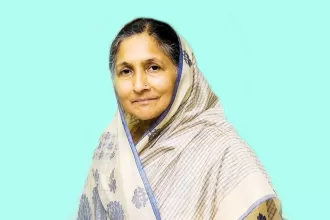Thiruvananthapuram: Today, Health Minister Veena George held a press conference to discuss the unfortunate demise of a young boy from Alappuzha, who fell victim to a rare brain infection caused by a free-living amoeba. She emphasized that there is no cause for panic and assured the public that this incident is an isolated occurrence. Minister George highlighted the extraordinary rarity of this non-communicable disease.
The 15-year-old Panavally native passed away while receiving treatment for a condition known as primary amoebic meningoencephalitis (PAM). Kerala has recorded a total of five cases of this nature thus far, as per the minister’s statement.
Alappuzha (2016), Malappuram (2019 and 2020), Kozhikode (2020), and Thrissur (2022) have previously reported cases of this sickness. Unfortunately, all five patients who contracted this disease met a tragic end. Minister Veena informed the media about the high mortality rate associated with this condition.
The amoeba responsible for this disease is typically found in stagnant bodies of water and has the potential to infect approximately 1 in 10,000 individuals. Once inside the nasal passage, the amoeba makes its way to the brain, causing tissue destruction and subsequent swelling. This microorganism is colloquially referred to as the ‘brain-eater.’
Symptoms of this disease include fever, headache, nausea, seizures, and more. The 15-year-old initially experienced fever on June 29 and was admitted to Thuravoor Taluk Hospital, reporting complaints of headache and impaired vision. Due to signs of mental confusion, encephalitis was initially suspected, leading to his referral to the medical college. Further investigation revealed that the patient had recently bathed in a local pond.
Nevertheless, the likelihood of contracting this amoeba through swimming in ponds is exceedingly rare, as emphasized by Veena George. She stressed that an official statement is being issued in response to the news of this unfortunate demise being reported by the media. The minister also commended Kerala’s efficient public health system for its ability to detect and study diseases of this nature. She provided reassurance that there is no need for alarm, as this illness does not transmit from person to person.





